The Role of Kitchen Equipment in Ensuring Food Safety

When it comes to running a successful restaurant, maintaining food safety is not just an option—it’s a necessity. One of the most significant contributors to food safety is the quality and effectiveness of the commercial kitchen equipment used. Investing in the right tools and maintaining them properly can make all the difference in preventing foodborne illnesses and complying with health regulations.
Why Food Safety Matters in the Restaurant Industry
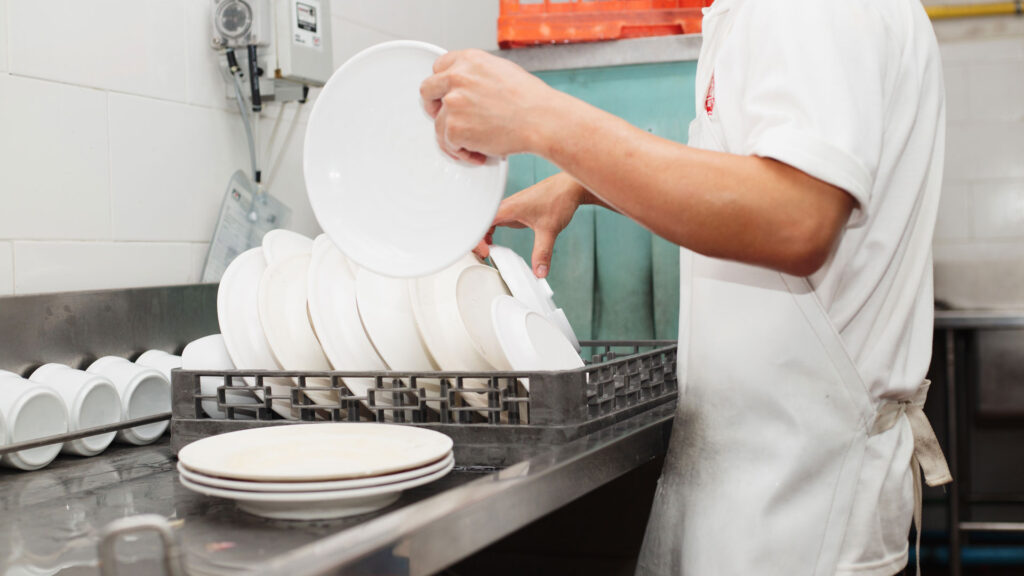
Food safety is a critical concern for any restaurant. A single incident of foodborne illness can damage a restaurant’s reputation and result in legal repercussions. This is why understanding the role of commercial kitchen equipment in food safety is essential. Proper equipment helps ensure food is prepared, cooked, stored, and served in a way that minimizes contamination risks.
Key Kitchen Equipment That Promotes Food Safety
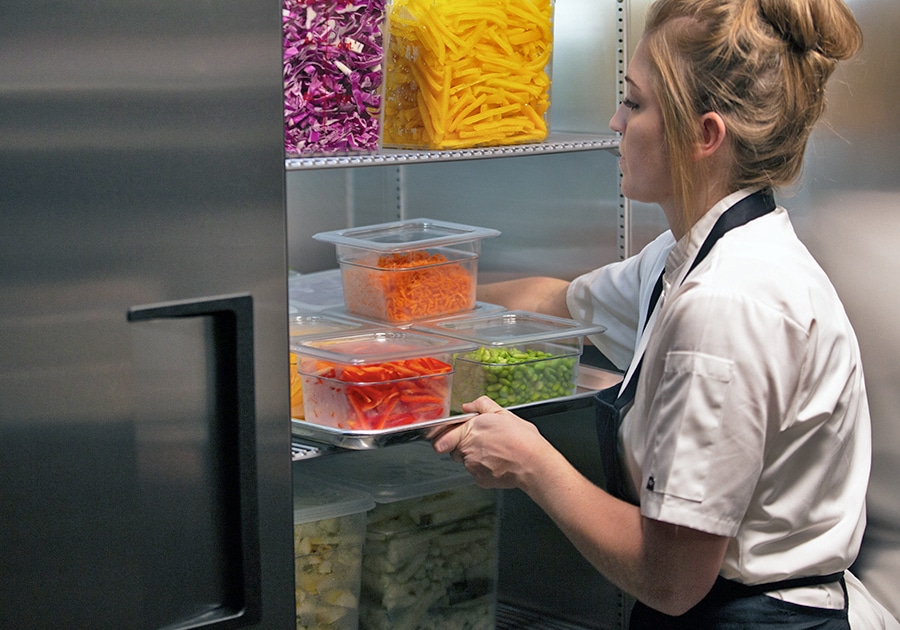
- Refrigeration Units: High-quality commercial refrigeration is crucial for keeping ingredients at safe temperatures to prevent the growth of harmful bacteria. These units ensure perishable items, such as dairy products, meats, and vegetables, remain within the recommended temperature ranges. Modern refrigeration units often include features like digital temperature controls, automatic defrosting, and alarms that notify staff if temperatures deviate from safe levels. Walk-in coolers, under-counter fridges, and blast chillers can also enhance food safety by providing tailored solutions for different storage needs.
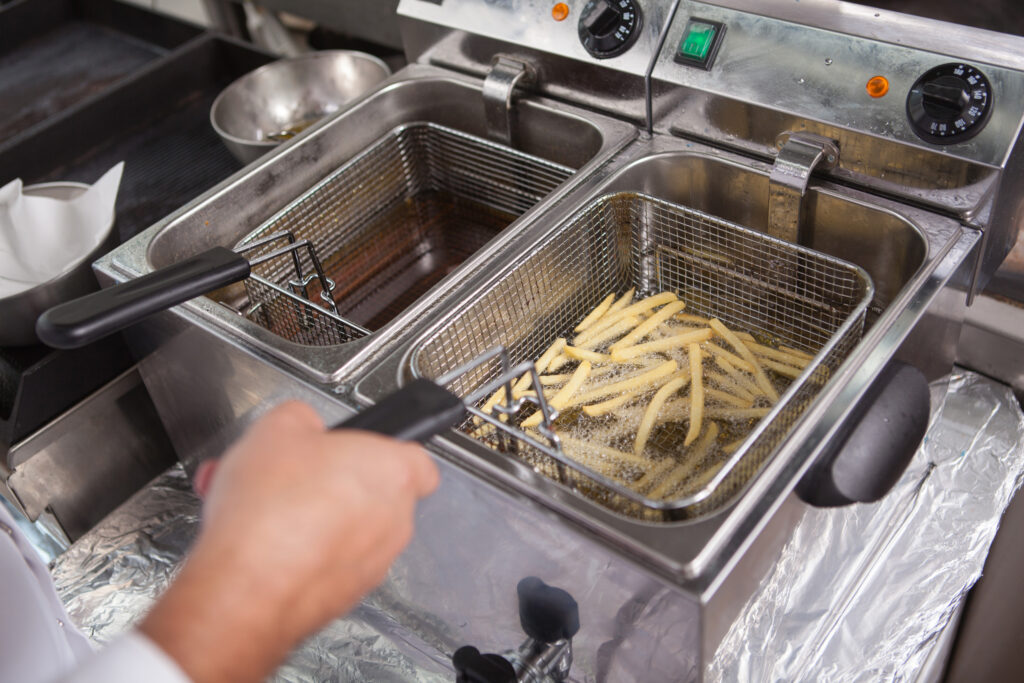
- Cooking Equipment: Ovens, grills, fryers, and steamers must heat food consistently to safe internal temperatures that kill harmful bacteria. Convection ovens, for example, use circulating hot air to ensure even cooking, reducing the risk of undercooked sections. Induction cooktops offer precise temperature control, which is essential for maintaining food safety during preparation. Grills and fryers with built-in temperature sensors and timers help chefs maintain consistent cooking conditions, ensuring that food is properly cooked throughout.
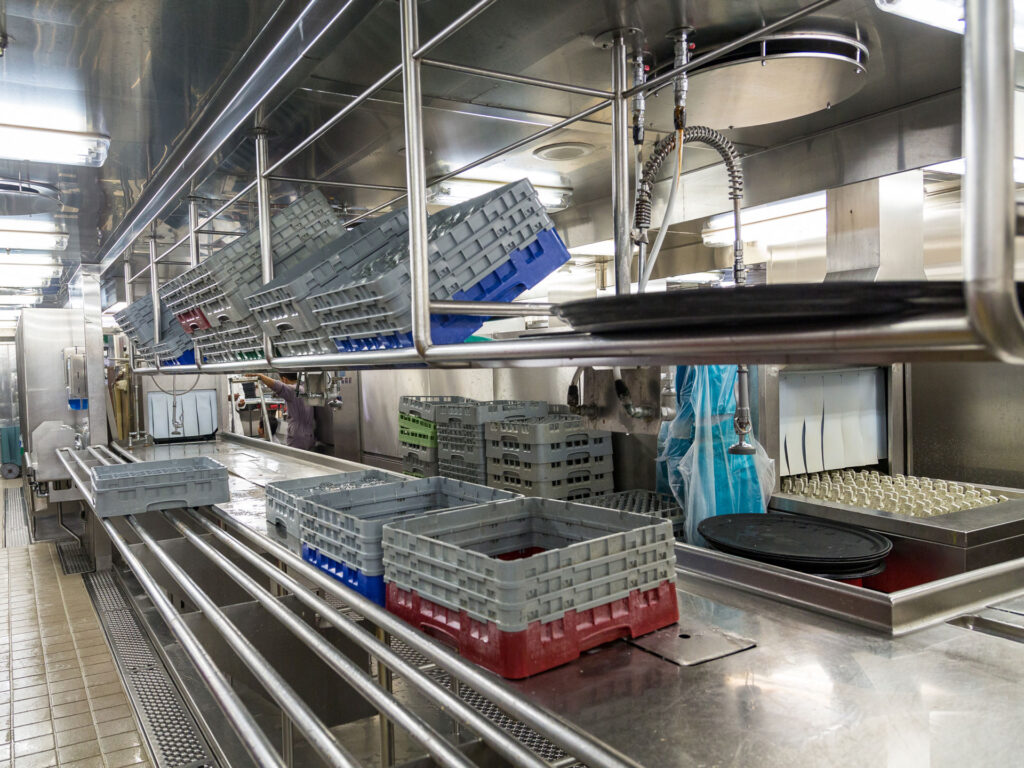
- Sanitizing Equipment: Dishwashers, sinks, and cleaning stations play a crucial role in sanitizing dishes, utensils, and cookware to prevent cross-contamination. Commercial dishwashers often operate at higher temperatures than domestic models and can include chemical sanitizing options for enhanced cleaning. High-temperature dishwashers ensure that dishes and utensils are sanitized effectively, while hand-washing stations with automatic faucets help maintain hygiene by reducing touchpoints and the spread of contaminants.
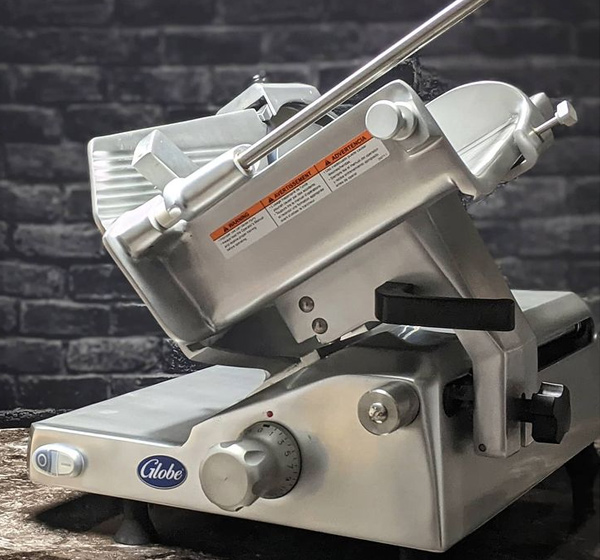
- Food Prep Equipment: Cutting boards, mixers, slicers, and other food prep tools made from non-porous, easy-to-clean materials can reduce the risk of bacterial growth. Color-coded cutting boards help prevent cross-contamination by designating separate boards for raw meats, vegetables, and other ingredients. Commercial mixers with stainless steel bowls and attachments are not only durable but also easier to sanitize. Additionally, food processors with detachable parts designed for easy cleaning can streamline the preparation process while supporting food safety.
Choosing the Right Equipment for Food Safety
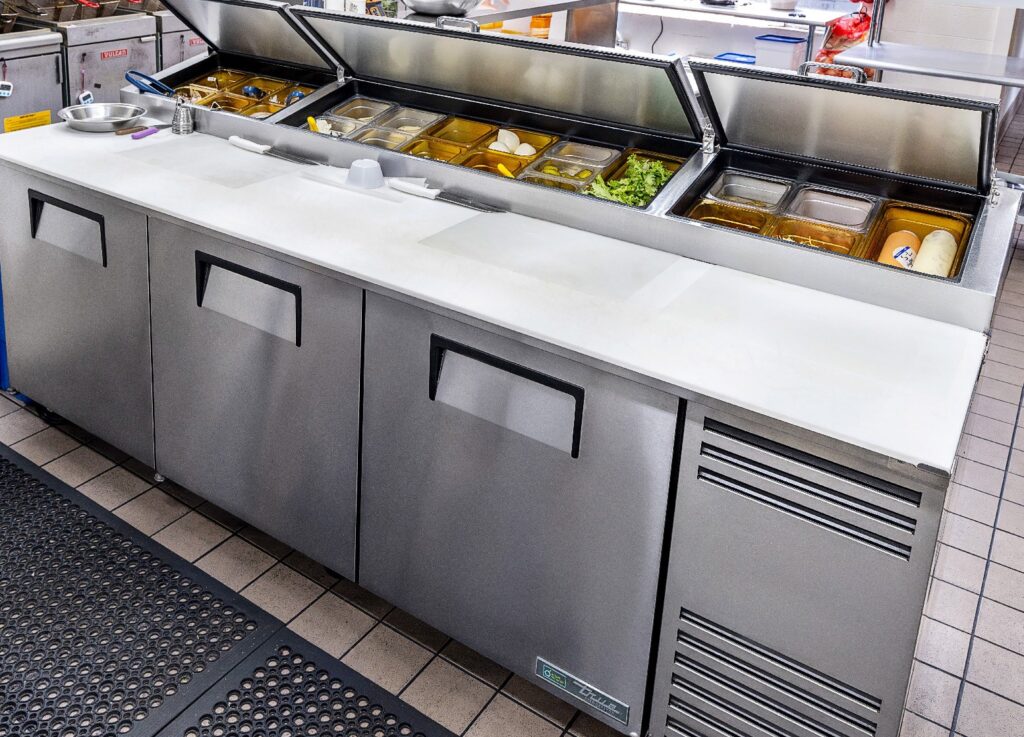
Investing in the right kitchen equipment is essential for ensuring food safety. When selecting equipment, consider the following:
- Durability and Maintenance: High-quality equipment should withstand the daily rigors of a busy kitchen and be easy to clean and maintain.
- Health Code Compliance: Equipment should meet or exceed local health code requirements. This includes NSF-certified (National Sanitation Foundation) products that are built to high safety standards.
- Technological Features: Equipment with built-in safety features, such as temperature alarms and automated shutoffs, provides an extra layer of security.
Importance of Equipment Maintenance for Food Safety
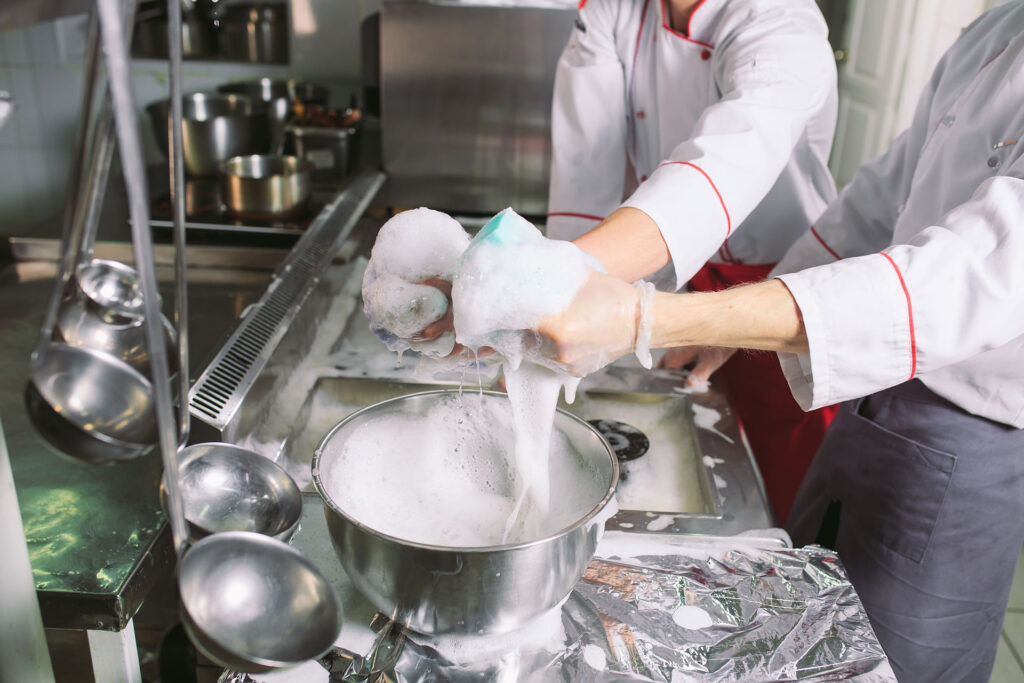
Regular maintenance is critical for ensuring that kitchen equipment continues to function at its highest efficiency, which directly impacts food safety. Here’s why maintenance matters:
- Prevents Contamination: Equipment that isn’t properly cleaned or maintained can become a breeding ground for bacteria and pathogens. For example, grease buildup in cooking equipment or unclean refrigeration gaskets can harbor contaminants that transfer to food. Routine maintenance and cleaning help eliminate these risks.
- Ensures Temperature Control: Faulty or improperly maintained refrigeration and cooking equipment can lead to temperature fluctuations. When food is stored or cooked at incorrect temperatures, harmful bacteria can multiply, increasing the risk of foodborne illness. Regular checks and calibrations help maintain consistent, safe temperatures.
- Extends Equipment Life: Well-maintained equipment is less likely to experience unexpected failures, which can disrupt kitchen operations and increase the risk of compromised food safety. Preventive maintenance helps identify issues before they become major problems, ensuring that the equipment stays reliable.
- Supports Health Code Compliance: Health inspections often focus on the cleanliness and functionality of kitchen equipment. Regular maintenance not only helps keep equipment in top shape but also demonstrates a commitment to upholding health and safety standards, reducing the risk of fines or penalties.
- Reduces Cross-Contamination: Equipment like cutting boards, mixers, and slicers must be cleaned thoroughly to avoid cross-contamination. Maintenance routines that include disassembly and deep cleaning of these items help ensure that no residual food particles or bacteria remain.
The role of commercial kitchen equipment in food safety cannot be overstated. By investing in high-quality, reliable equipment and maintaining it properly, restaurant owners can ensure safer food handling, comply with health regulations, and protect their patrons. This proactive approach not only enhances the dining experience but also builds trust with customers, fostering long-term success for the business.
